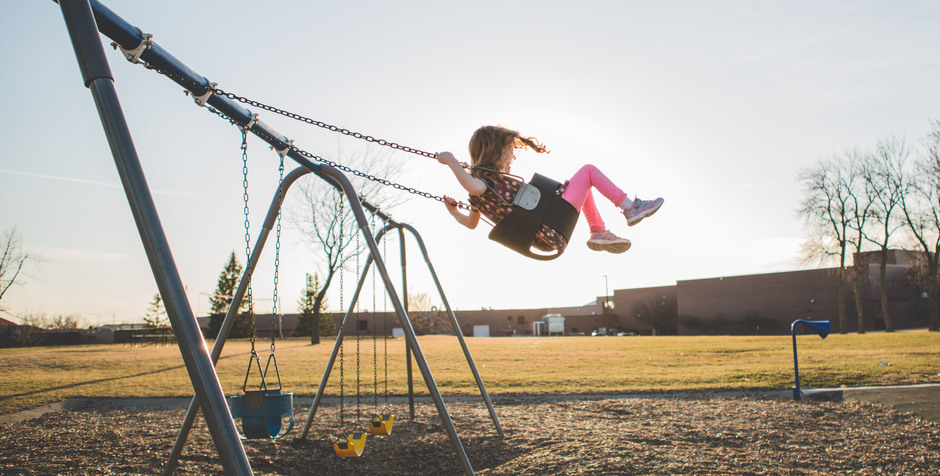What Skinned Knees and Children’s Playgrounds Have To Do With Defending Religious Liberty at the Supreme Court
Can the government target churches for exclusion from a child safety program just because they are churches?
That is the question before the U.S. Supreme Court in the case of Trinity Lutheran Church v. Comer. The Supreme Court heard oral argument on April 19, and a decision is likely to be issued by the end of June. The ACLJ filed two amicus briefs in the case and helped prepare the church's attorney for oral argument.
The case is also notable as the first major religious liberty case heard before the newest Associate Justice of the Supreme Court, Neil Gorsuch.
Background: Churches Need Not Apply
The Trinity Lutheran case arises from, of all things, a tire-recycling program in Missouri. The state set up a program to reimburse approved uses of recycled tire rubber, including the use of such rubber to resurface playgrounds. It was a win-win program: The state gets rid of leftover tires, and children get a softer, safer landing if they fall while using a playground.
Trinity Lutheran Church has a learning center, which in turn has a playground that is open to public use. Trinity Lutheran applied for the recycling program, proposing to resurface the learning center playground and requesting state reimbursement of that expense. The church scored quite well among the various applicants and would have been approved, except for one small detail: As a church, Trinity Lutheran was categorically disqualified from the program.
The church sued in federal court, claiming that the state was unconstitutionally disfavoring religious bodies. The district court dismissed the church's challenge, and a federal appeals court affirmed by a 2-1 vote. The church then petitioned the Supreme Court to hear the case.
The ACLJ Weighs In
The ACLJ filed a friend-of-the-court brief urging the Supreme Court to grant Trinity Lutheran's petition. As we noted:
It should be an obvious norm of constitutional law that a government entity cannot discriminate against a church for the sole reason that it is a church. Yet this Court has never squarely so held. This case presents an excellent vehicle for a holding that will repair this gap in this Court’s precedents.
The Supreme Court then agreed to hear the case. The ACLJ filed another amicus brief, this time arguing that the church should prevail on its constitutional challenge. As we explained:
In the distribution of entirely secular benefits (like playground safety resurfacing), the government may not discriminate against otherwise eligible private entities solely on the basis of their religious identity.
We elaborated:
It follows that a government’s posting of a “no churches, synagogues, or mosques allowed” sign, whether literal or figurative, would run afoul of both the Equal Protection Clause and the religion and speech clauses of the First Amendment.
The consequences of a contrary ruling would be to authorize gratuitous hostility against religious entities and those they serve, including children. Use of public parks could be free except for church picnics. Tours of museums could be free for all student groups except for religious schools. A government transportation agency could allow free (and thus subsidized) use of express lanes by HOV vehicles except for church buses.
Indeed, this case already is the extreme hypothetical: A state could deny playground safety resurfacing grants to otherwise qualified recipients, at the expense of the children using those playgrounds, solely because of their religious identity.
As we concluded:
May a government program of flood relief exclude houses of worship, and only houses of worship? May a municipality provide taxpayer-funded police, fire, and rescue to all other residents yet exclude only churches, synagogues, and mosques? . . . May a state categorically exclude churches while otherwise allowing any entity that maintains a playground to apply for resurfacing aid, for the safety of children who play there? The answer in all such cases is a resounding “no.”
Positive Signs at the Oral Argument
At the oral argument of this case, it was clear that the Justices of the Supreme Court understood these concerns. Indeed, the Justices even asked whether upholding the exclusion of churches here would authorize the discriminatory exclusion of tours by students from religious schools (pp. 44-45) and the exclusion of churches from police and fire protection (pp. 35-37). As Justice Elena Kagan concisely put it (p. 41): "[T]he question is whether some people can be disentitled from applying to that program and from receiving that money if they are qualified based on other completely nonreligious attributes, and they're disqualified solely because they are a religious institution doing religious things."
This case provides a wonderful opportunity for the Supreme Court to state, in no uncertain terms, that governments may not target houses of worship or other religious entities for second-class status, especially when it comes to such vital matters as security, health, and safety. We pray that Trinity Lutheran Church v. Comer will go down in the books as an important victory for religious liberty.
